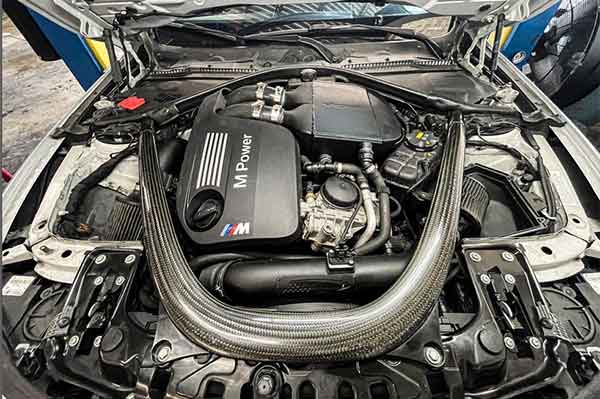A Beginner's Overview to Picking the Right BMW Engine for Your Demands
A Beginner's Overview to Picking the Right BMW Engine for Your Demands
Blog Article
Revealing the Intricacies of Next-Generation Power Units: a Deep Study Advanced Engine Styles and Technologies
In the world of auto engineering, the unrelenting search of performance, performance, and sustainability has actually driven the evolution of power devices to unprecedented elevations. As we depend on the precipice of a new age in transport, the intricacies of next-generation engine layouts bid us to check out the advanced technologies and technologies that promise to redefine the driving experience. From sophisticated materials that push the limits of resilience and weight reduction to advanced turbocharging and turbo charging systems that elevate power result to new degrees, each part of these power systems holds a crucial to unlocking the future of automobile design. Diving deeper into the worlds of emission control, intelligent engine administration systems, and the horizon of power device development, we locate ourselves on the cusp of a transformation that assures to reshape the landscape of movement as we understand it.
Development of Engine Products

The change in the direction of progressed engine products has actually also enabled engineers to design engines with greater power results while keeping gas effectiveness requirements. The use of light-weight materials minimizes the overall weight of the engine, leading to boosted gas economy and reduced discharges. Additionally, advancements in materials modern technology have actually permitted for much better thermal management within engines, leading to boosted dependability and durability.
Turbocharging and Supercharging Technologies
Exactly How do Turbocharging and Supercharging Technologies revolutionize engine efficiency and effectiveness in modern-day automobiles? Turbocharging and turbo charging are modern technologies that significantly improve engine efficiency by enhancing the amount of air consumption into the burning chamber. Turbocharging attains this by using a turbine driven by exhaust gases to pressurize the consumption air, while supercharging utilizes a belt- or chain-driven compressor to attain the exact same effect.
These technologies allow smaller sized, much more fuel-efficient engines to generate power equal to bigger ones, referred to as downsizing. By forcing more air right into the cylinders, turbocharging and supercharging improve burning efficiency, leading to increased horsepower and torque result without a considerable rise in engine size. This causes better acceleration, lugging capacity, and general driving efficiency.
Furthermore, supercharging and turbocharging contribute to boosted fuel effectiveness by enabling the use of smaller engines that eat less fuel under typical driving problems - bmw engine. This combination of improved efficiency and performance has made turbocharging and supercharging important parts of numerous contemporary engine layouts
Emission Control and Environmental Impact
With enhancing international problems concerning air high quality and ecological sustainability, the implementation of discharge control innovations in lorries plays a vital duty in decreasing damaging toxins released into the atmosphere. Modern automobiles are furnished with innovative exhaust control systems that aid decrease the ecological influence of automotive procedures. Catalytic converters, for circumstances, are created to transform hazardous gases such as carbon monoxide, nitrogen oxides, and hydrocarbons into less unsafe substances like co2 and water vapor.
Moreover, advancements in engine technology, such as the integration of exhaust gas recirculation systems and discerning catalytic reduction, have actually considerably added to lowering emissions. These modern technologies function in tandem to optimize combustion efficiency and minimize the launch of unsafe pollutants right into the air. In addition, the development of crossbreed and electrical vehicles represents an essential action in the direction of minimizing the general environmental impact of the transportation sector.
Intelligent Engine Monitoring Solution

Additionally, these systems make it possible for navigate to this site cars to meet rigid emissions requirements without compromising efficiency, providing an extra environmentally pleasant driving experience. The integration of fabricated intelligence and artificial intelligence capacities in engine administration systems proceeds to push the borders of what is possible, causing more enhancements in performance, reliability, and general car performance. bmw engine. As auto innovation advancements, smart engine administration systems will play a critical role fit the future of transportation in the direction of a much more lasting and reliable instructions
Future Trends in Power Device Development
As smart engine more management systems pave the way for enhanced control and optimization in contemporary vehicles, future patterns in power system development are poised to redefine the landscape of automobile propulsion technologies. These different power resources offer improved efficiency and performance while straightening with rigid ecological policies.
One more substantial trend is the integration of innovative products and making strategies. Light-weight products such as carbon fiber and light weight aluminum are being made use of to decrease overall lorry weight, enhancing gas effectiveness and performance. Furthermore, advancements in 3D printing and additive manufacturing are making it possible for the manufacturing of complex engine parts with greater accuracy and sturdiness.
Additionally, expert system and machine understanding are playing a crucial duty in maximizing power system performance. These innovations allow for real-time tracking and adaptive control, causing a lot more trustworthy and efficient power delivery. In general, future trends in power system advancement are tailored towards effectiveness, sustainability, and efficiency, driving the automobile sector towards a brand-new age of propulsion technologies.

Verdict
In final thought, the innovations in engine products, turbocharging, exhaust control, and smart management systems have paved the method for next-generation power devices. These advancements have not only enhanced efficiency and efficiency yet also minimized ecological effect. As technology remains to evolve, future patterns in power device growth are most likely to concentrate on more boosting sustainability and maximizing power result. The intricate designs and advancements in contemporary engines showcase the continuous evolution of automotive modern technology.
Discovering the modern improvements in engine products has actually been crucial in enhancing the efficiency and effectiveness of modern engines. Over the years, the development of engine materials has played an important function in pushing the boundaries of what engines can achieve.The shift towards advanced engine materials has actually likewise made it possible for engineers to develop find out engines with greater power results while keeping fuel efficiency requirements.The implementation of smart engine management systems in modern-day automobiles has transformed the method engines are managed and maximized for efficiency and effectiveness. By gathering information in real-time and analyzing it with sophisticated algorithms, intelligent engine management systems can adapt to driving styles, ecological variables, and engine wellness to make best use of power output while reducing gas usage and exhausts.
Report this page